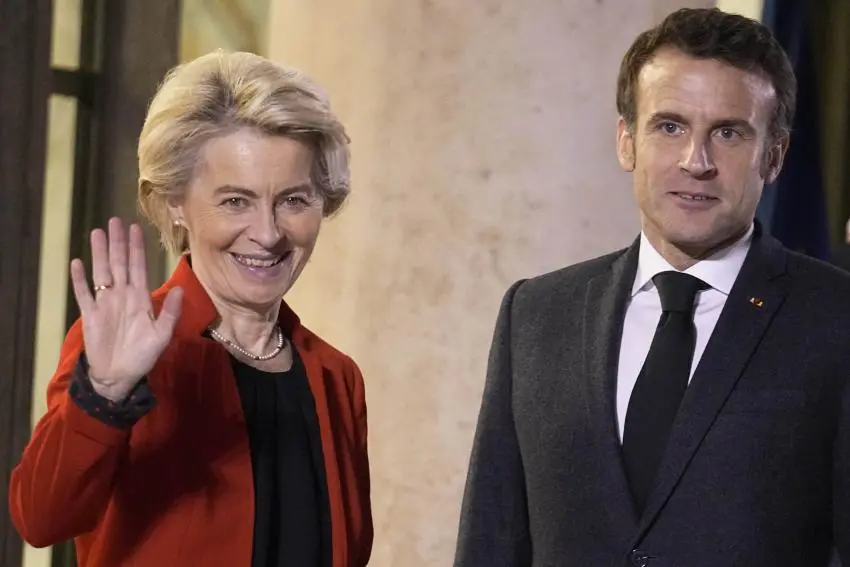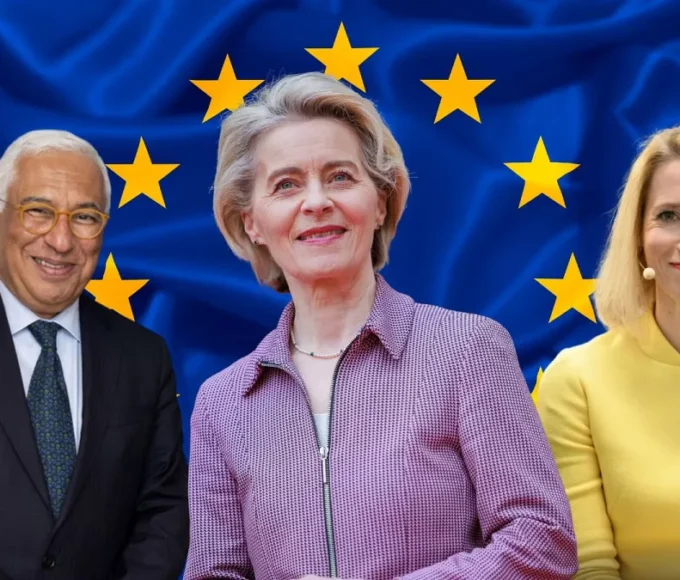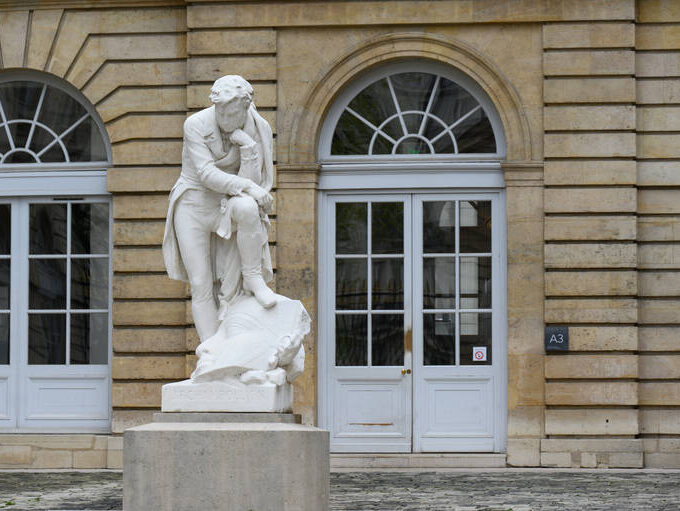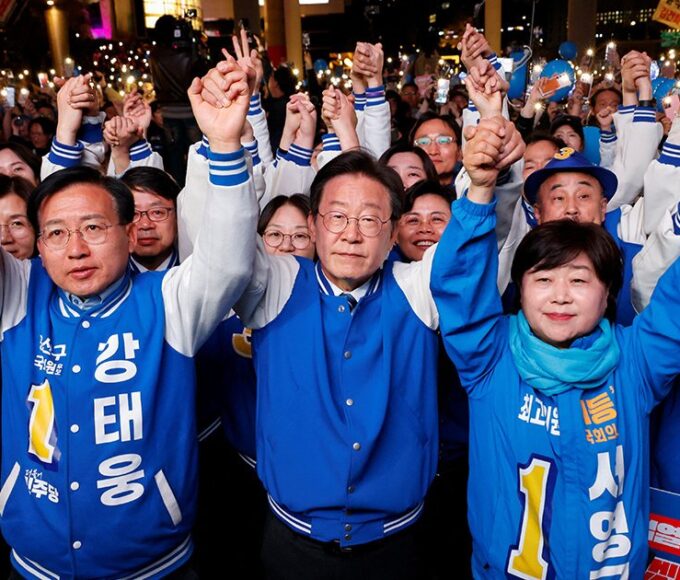Emmanuel Macron and Ursula von der Leyen should set the tone for relations between Europe and China.
French President Emmanuel Macron and European Commission President Ursula von der Leyen are expected to make human rights a priority during their visit to Beijing from April 4-8, 2023, Human Rights Watch said today.
As Chinese President Xi Jinping seeks to restore relations with France and other European governments as well as the European Union (EU), since ending the draconian “zero-covid” policies of China, Macron and von der Leyen should seize the opportunity of their visit to place relations between Europe and China within a framework of respect for human rights.
“President Macron and President von der Leyen should not shove the growing authoritarianism of the Chinese government under the rug during their visit to Beijing,” said Bénédicte Jeannerod, France director of Human Rights Watch. “They should take advantage of their public appearances with Xi Jinping to express their deep concern about widespread human rights abuses across China, growing oppression in Hong Kong and Tibet, and crimes against humanity in Xinjiang. »
Emmanuel Macron and Ursula von der Leyen should publicly demand the release of all those detained and imprisoned for political reasons, including hundreds of thousands of Uyghurs and other Turkic Muslims in Xinjiang, activists and politicians prosecuted for peaceful political actions in Hong Kong, and protesters arrested for taking part in the so-called “clean sheets” protests, against anti-Covid-19 restrictions.
The two leaders are also expected to discuss individual cases, such as those of Uyghur economist Ilham Tohti, winner of the European Parliament’s Sakharov Prize, and Hong Kong media magnate Jimmy Lai. Before traveling to Beijing, they are expected to speak with civil society organizations from mainland China, Xinjiang, Tibet and Hong Kong.
The official visit of Emmanuel Macron and Ursula von der Leyen, whose invasion of Ukraine by Russia seems to be one of the main axes, is part of a series of several high-level meetings between the Europe and China in recent months. German Chancellor Olaf Scholz and European Council President Charles Michel visited Beijing last November and December, respectively. Charles Michel had raised the issue of human rights on this occasion, but did not suggest that the continuation of human rights violations in China would affect EU-China relations. In February, Chinese Foreign Minister Wang Yi met Emmanuel Macron in Paris and attended the annual Munich Security Conference.
In the context of these recent exchanges between Europe and China several important human rights developments have taken place, according to Human Rights Watch. In mid-February, government officials from the UK, France and the EU, under public pressure, canceled meetings with a senior Xinjiang official, Erkin Tuniyaz, who had been sanctioned by the state government. -United.
Human Rights Dialogue
Around the same time, the EU resumed a “human rights dialogue” with the Chinese government, despite calls from civil society organizations to suspend it. For the latter, this dialogue was clearly ineffective, the EU having long been unable to link it to tangible progress in China or to tackle the Chinese government’s impunity for serious violations. Also in mid-February, Beijing’s new ambassador to the EU said Brussels and Beijing must lift sanctions they were imposing on each other to allow a bilateral trade deal to come into effect. The EU had imposed sanctions on senior Xinjiang officials for rights abuses against Turkic Muslims, to which Beijing retaliated.
Since 2019, the EU and some European governments and institutions have helped build momentum to hold Beijing to account for crimes against humanity committed against Uyghurs and other Turkic Muslims in Xinjiang, by imposing sanctions against senior officials in the region. In October 2021, at the UN, France took the lead in an unprecedented cross-regional condemnation of these abuses.
The following year, two months after the publication by the Office of the United Nations High Commissioner for Human Rights of an unprecedented report concluding that the abuses committed in Xinjiang “could constitute crimes against humanity”, France and other EU member states backed a UN Human Rights Council motion to hold a debate on the situation in Xinjiang. Although defeated by a 19-17 vote, the narrow margin undermined the Chinese government’s sense of impunity for its serious crimes, Human Rights Watch said.
Recent developments suggest that human rights in China are once again at risk of being pushed into the background, as was the case before 2019, when many European leaders and governments favored “quiet diplomacy” in response to growing human rights abuses. China. This approach has generated little pressure on Beijing to reverse the downward spiral of the human rights situation under Xi.
During his last state visit to China, in November 2019, Emmanuel Macron did not publicly mention the serious abuses committed by Beijing in Xinjiang. During his closing press conference, he said he had insisted with his Chinese counterpart on the need for dialogue and restraint in Hong Kong. However, he did not call on him to respect the rights of the people of Hong Kong, which had been the scene for six months of massive pro-democracy demonstrations marked by excessive use of force by the police.
The next EU-China summit is due to be held in Brussels in June and EU foreign policy chief Josep Borrell is reportedly planning to visit China soon.
“Russia’s war crimes in Ukraine should not be a reason for Emmanuel Macron and Ursula von der Leyen to ignore the growing human rights violations by the Chinese government,” concluded Bénédicte Jeannerod. “They should take advantage of their trip to Beijing to express themselves on the deterioration of human rights in China and to show that the proclaimed commitment of France and the EU in favor of fundamental rights and freedoms also applies to the China, consistently. »
This article is originally published on hrw.org








